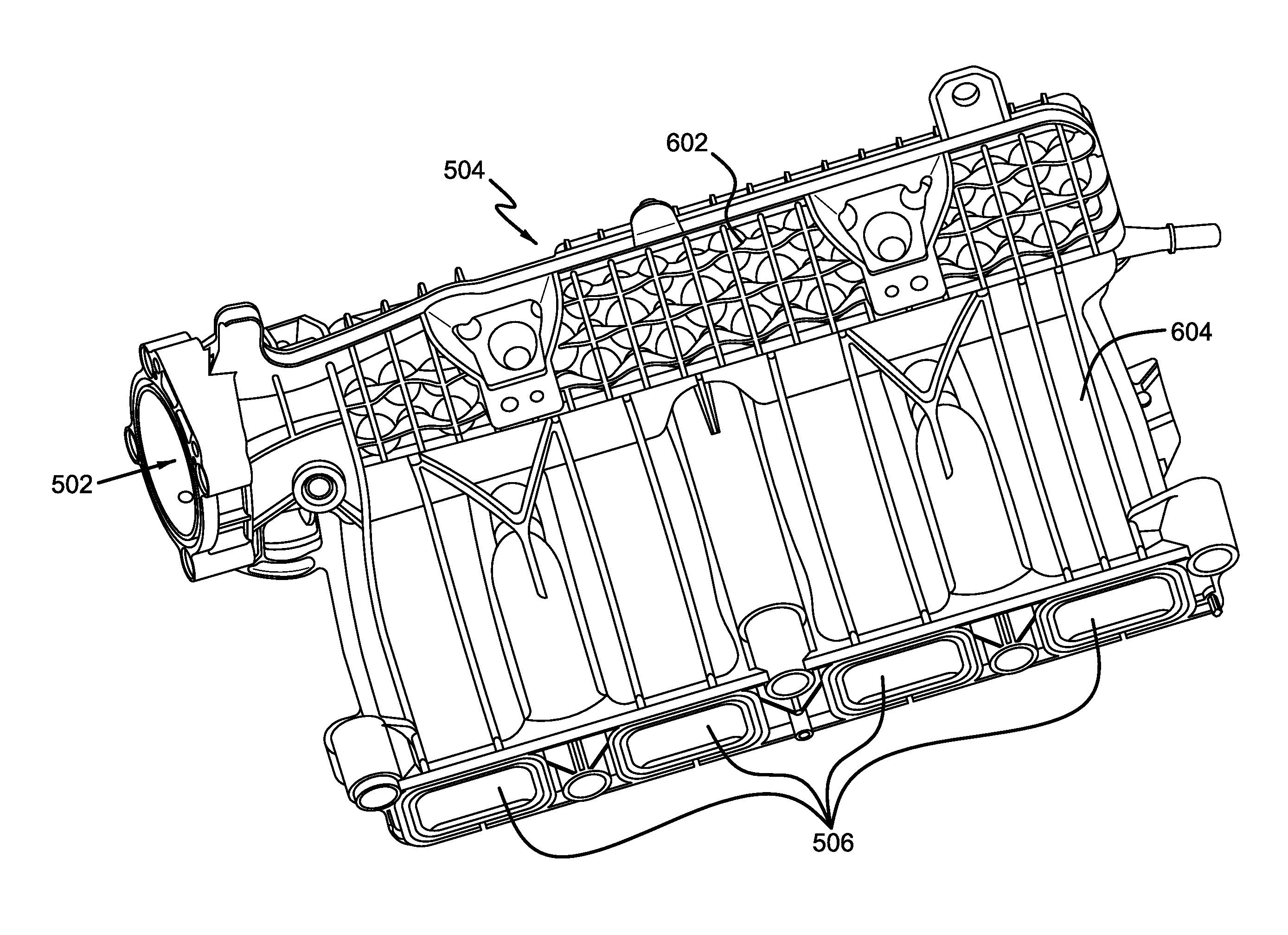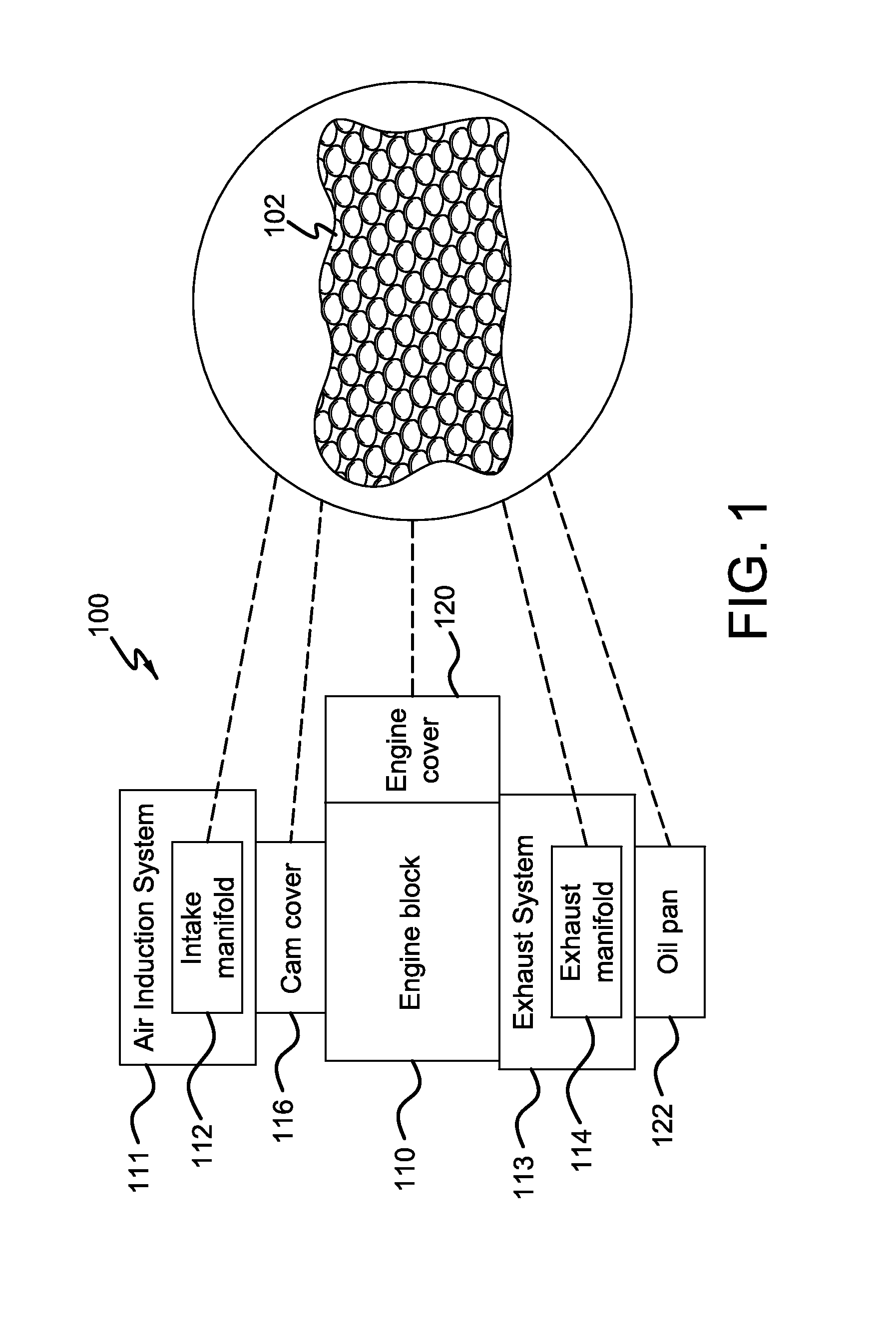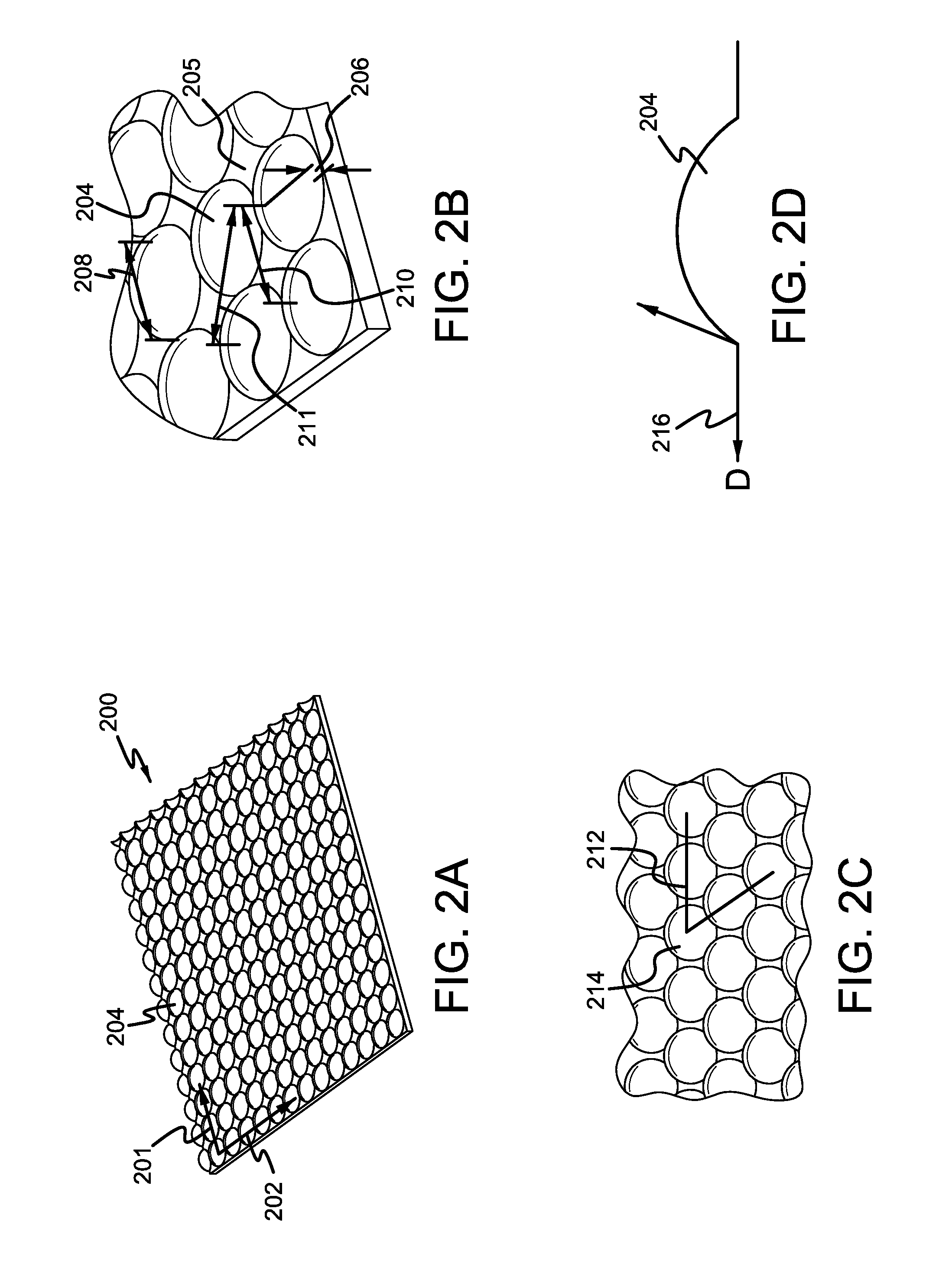Structure to reduce noise and vibration in an engine system
a technology of engine system and structure, which is applied in the direction of machines/engines, combustion air/fuel air treatment, mechanical equipment, etc., can solve the problems of increasing the weight of the surface sound radiation, the noise of the surface sound may be considered undesirable, and the airflow through the system may develop chaotic features, etc., to reduce the turbulent noise, increase the structural rigidity of the manifold assembly, and the effect of reducing the nois
- Summary
- Abstract
- Description
- Claims
- Application Information
AI Technical Summary
Benefits of technology
Problems solved by technology
Method used
Image
Examples
Embodiment Construction
[0019]Methods are described for reducing noise radiated in an engine system. In one example, polydome protuberances on planar surfaces of an intake manifold are positioned in a grid-like manner to increase the structural rigidity of the surface and thereby reduce the noise radiated due to vibrations on the surface. However, other engine components and devices may take advantage of such protuberances, such as a cam cover, a front cover, etc. In this regard, FIG. 1 presents a schematic diagram showing example engine components having planar surfaces wherein the described polydome protuberances may be applicable. FIGS. 2-4 show example surfaces with dome-shaped protuberances whose dimensions and spatial arrangements are adjusted to reduce noise in various frequency ranges. The polydomal features offer various advantages, including improving overall packaging space, wall thickness, weight, time-to-freeze, etc. FIGS. 5-12 shows an exemplary intake manifold including example polydome prot...
PUM
| Property | Measurement | Unit |
|---|---|---|
| Weight | aaaaa | aaaaa |
| Thickness | aaaaa | aaaaa |
| Diameter | aaaaa | aaaaa |
Abstract
Description
Claims
Application Information
 Login to View More
Login to View More - R&D
- Intellectual Property
- Life Sciences
- Materials
- Tech Scout
- Unparalleled Data Quality
- Higher Quality Content
- 60% Fewer Hallucinations
Browse by: Latest US Patents, China's latest patents, Technical Efficacy Thesaurus, Application Domain, Technology Topic, Popular Technical Reports.
© 2025 PatSnap. All rights reserved.Legal|Privacy policy|Modern Slavery Act Transparency Statement|Sitemap|About US| Contact US: help@patsnap.com



